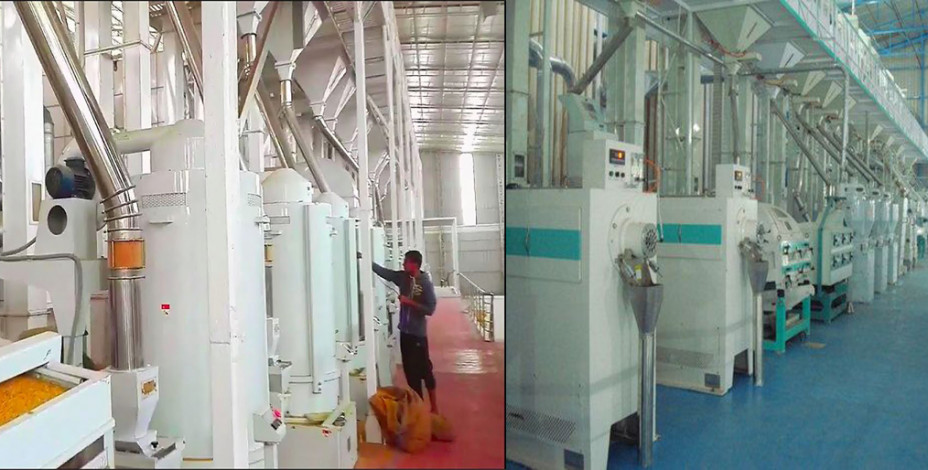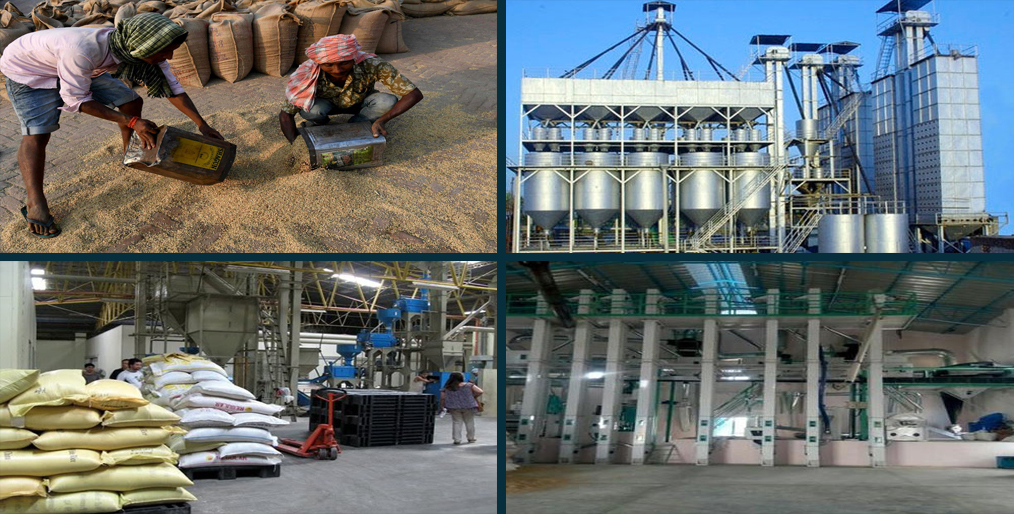
Firstly, Bangladesh is an agricultural country. Secondly, 70 to 75 percent of the agricultural crop in Bangladesh is paddy. Bangladesh is one of the top countries in the world in the production and use of paddy and rice. Paddy is cultivated almost all over the country. And rice is the main food of the country. As a result, there is a huge manpower involved in various activities and businesses including production, processing and marketing of paddy and rice in Bangladesh. A large part of it is employed with the rice mill industry. Bangladesh is a low-middle income country with a large population. So there are huge potentials in the rice mill industry of this country, there are also some problems. Potentials in the rice mill industry of Bangladesh The demand of rice is inelastic in nature as it is the basic food grain of Bangladesh. The demand does not change significantly with price and low sales uncertainties as all rice products are saleable: * Stone-feed * Rice-plain * Bran-Oil * Tush-Mill * Broken Rice-poor people buys them and also used as feed Moreover, auto rice mills are entitled to rice allotment or incentives from the government and even banks provide financial support to the mills through overdraft limit, working capital limit, etc. Demand for rice increases with the population the income is fixed with low leverage risk. All these and other factors make rice mill industry an area of possibilities and future investments. Other factors that can enhance the possibilities for this industry include: *Reducing middlemen’s cost: Removing intermediary or middlemen’s commission cost. * Low monitoring cost and low cost of labor: Machine intensive mills can reduce the cost of labor mainly for husking mills. * Export permission: It could be an opportunity for the manufacturers as there are surplus productions of rice. * A good relationship with the suppliers: This means that supply chain management is flexible and strong. * Converting to auto rice mill: Automation of the production process to ensure market survival and continuing credibility. * Climate: For auto rice mills, the climate factors are omitted in the rice processing. * Experience: The vast experience of the proprietor can create a strong presence in the local area to maintain the fixed market share. * Labor advantage: Labor or technician availability according to area or location. * Good marketing strategy: Small packaging makes storage easier for consumers. So they would buy in small quantities as storage is easy and buy again when needed.

File Photo[/caption] Problems in the rice mill industry of Bangladesh Generally, there is always the threat of intense competition which might create a problem for the small firms. Moreover, the difference in the mill types can be a problem. For instance, the process of husking rice mills is lengthy and labor intensive. Even the drying process takes longer time compared to the automated rice mills. Other factors which can raise a problem include: * Technology: Technology can be a threat as labor is reduced every time specialized machinery are improved or developed. * By-products not produced by all mills: Husking mill does not have bran. * Government incentives and tax: There is a lack of incentives for the millers and tax rate which could have helped boost this industry. * The price of paddy: Price volatility of paddy due to damage of crops, lower production of rice, import impact, etc. * Environmental hazard: ‘Tush' in the air creates breathing problem for people in that area. For instance, a similar case happened in Dinajpur. ‘Environment Clearance Certificate' is required for production. * Syndicate: Political syndicate influencing distributional cost. * Climate issue: When there is flood it might destroy the paddy which is a risk for the rice millers as it might raise the price of the paddy. * Management and maintenance problem: There might be management issue if the goal of the managers is not aligned with the firm's goals. Moreover, there can also be a maintenance issue if the technician is not skilled or trained to operate the machines. * Farmers switching to other grains: Farmers switching to more profitable crops like maize, potato, jute, pulses and oilseeds might increase the price for paddy. The rice mill owners have been interviewed and they informed that their frequency of load shedding is quite a lot and there are also shortages of labor supply which have a negative impact on the production. Selling in due is another problem of marketing and distribution. The demand for rice will always be there. As demand grows, the need to boost the production and milling process also grows. Increased business efficiency and productivity can be traced to the automation of the processes. The government can play an important role in this agricultural sector by supporting the farmers and millers to face and overcome these challenges. Unfortunately, the flash flood, rainfall, disease attacks on standing paddy and depleting stocks are creating a challenging situation for the agricultural sector. The damage of Boro paddy caused by the flood in the haor region in the northeast and rainfalls came as a blow to the market. There is a shortage of paddy which might increase the price thus affecting the poor people. The government needs to take initiative to help and support the farmers and the local millers to cope with the situation and stabilize the market. Source: Online/SZK
Comment Now